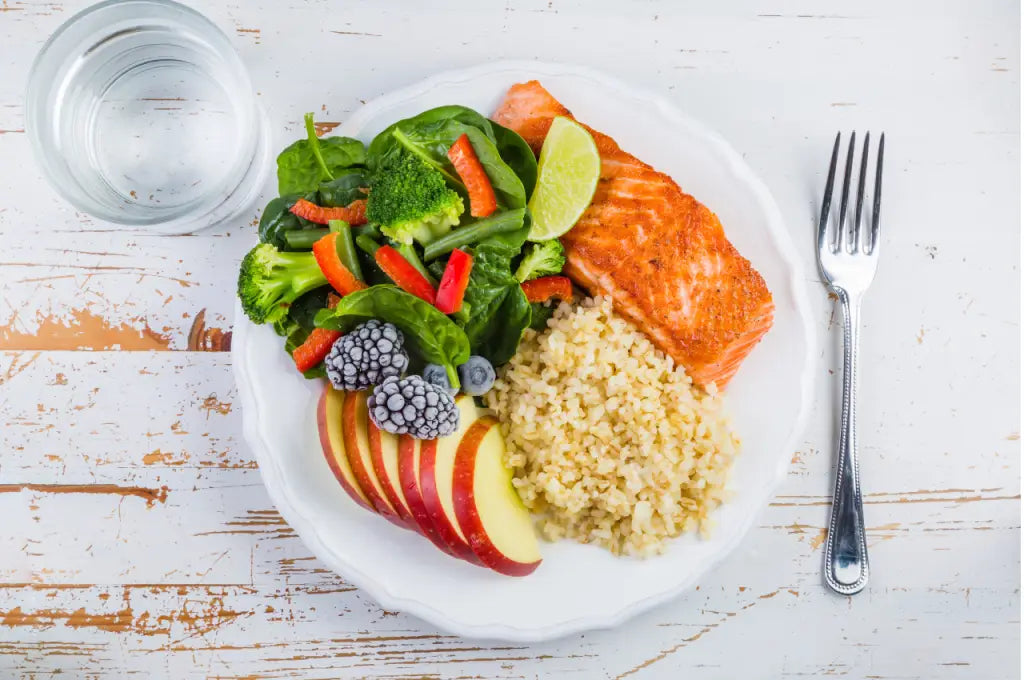
Eating Right for Dance: Nutrition Tips for Dance Moms and Dancers
Dance is not only a beautiful art form but also a physically demanding discipline that requires strength, flexibility, and endurance. As a dance mom, supporting your dancer's journey involves more than just attending performances and practices – it includes ensuring they have the proper nutrition to fuel their bodies for optimal performance. In this blog post, we'll explore essential nutrition tips for dance moms and dancers, helping you navigate the delicate balance between maintaining energy levels, promoting overall health, and supporting your dancer's passion for movement.
Hydration is Key:
Staying hydrated is crucial for dancers, as dehydration can lead to fatigue, muscle cramps, and decreased performance. Encourage your dancer to drink water throughout the day, especially before, during, and after dance classes or performances. Consider investing in a reusable water bottle that they can easily carry to stay hydrated and avoid sugary drinks.
Balanced Meals and Snacks:
Provide balanced meals that include a mix of macronutrients – proteins, carbohydrates, and healthy fats. Before dance activities, opt for complex carbohydrates like whole grains, fruits, and vegetables to provide sustained energy. Include lean proteins for muscle repair and growth, and incorporate healthy fats for overall well-being.
Timing Matters:
Timing meals and snacks is essential to ensure your dancer has a steady supply of energy. Aim for a balanced meal about two to three hours before dance activities. If there's limited time, a small snack 30 minutes to an hour before can provide a quick energy boost. After dance sessions, prioritize a post-workout meal or snack to aid in recovery.
Protein for Muscle Support:
Dancers, like athletes, benefit from adequate protein intake to support muscle health. Include lean protein sources such as chicken, fish, beans, tofu, or Greek yogurt in their meals. Protein-rich snacks like nut butter on whole-grain crackers or yogurt with fruit can also be beneficial.
Incorporate Nutrient-Dense Foods:
Choose nutrient-dense foods that provide essential vitamins and minerals. Dark leafy greens, colorful vegetables, fruits, whole grains, and nuts are excellent choices. These foods contribute to overall health, support immune function, and provide antioxidants to combat oxidative stress.
Mindful Eating Practices:
Encourage mindful eating practices to help your dancer develop a healthy relationship with food. Avoid restrictive diets and instead focus on nourishing the body with wholesome, balanced meals. Encourage them to listen to their hunger and fullness cues, promoting a positive and sustainable approach to nutrition.
Limit Processed Foods and Sugars:
While occasional treats are fine, it's essential to limit the consumption of processed foods and added sugars. These can lead to energy spikes followed by crashes, affecting performance. Opt for whole, unprocessed foods to provide sustained energy and promote overall well-being.
Calcium and Vitamin D for Bone Health:
Dancers often engage in weight-bearing activities, making bone health crucial. Ensure an adequate intake of calcium and vitamin D through dairy products, leafy greens, fortified foods, and safe sun exposure. These nutrients support bone density and reduce the risk of stress fractures.
Individualized Nutrition Plans:
Every dancer is unique, and their nutritional needs may vary based on age, activity level, and personal preferences. Consider consulting with a registered dietitian or nutritionist to create an individualized nutrition plan that aligns with your dancer's specific requirements and goals.
Encourage a Positive Body Image:
Promote a healthy body image by emphasizing the importance of nourishing the body for strength, energy, and overall well-being rather than focusing solely on appearance. Encourage open communication about body image and foster a supportive environment for your dancer.
As a dance mom, playing an active role in your dancer's nutrition is a valuable contribution to their success and well-being. By prioritizing hydration, balanced meals, nutrient-dense foods, and individualized nutrition plans, you're not only supporting their physical health but also instilling lifelong habits for a vibrant and fulfilling dance journey. Remember, the goal is to nourish the body to fuel the passion for dance and promote overall health and vitality.
